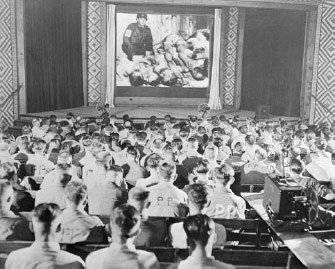The Boy Who Went to War (31 page)
Read The Boy Who Went to War Online
Authors: Giles Milton

Uniformed officers confiscate books in preparation for burning them. The above took place in Hamburg: similar scenes occurred in Pforzheim in June, 1933.
Â
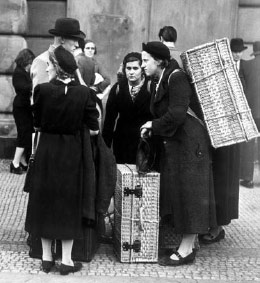
Nazi policy was to deport all Jews in Germany (left). Among the first communities to be deported was that of Pforzheim in October 1940.
Â
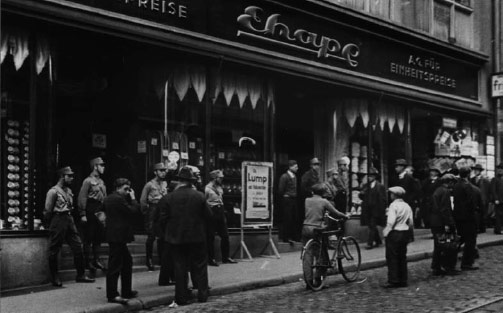
State sponsored anti-Semitism was ubiquitous: here, one of Pforzheim's Jewish owned shops, Ehape, is guarded by uniformed Nazis. âScoundrel' reads the banner outside.
Â
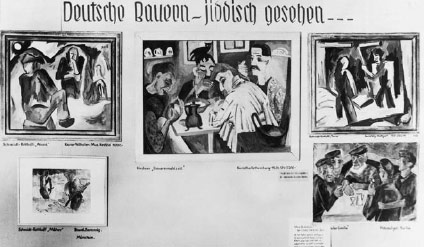
Â
Â
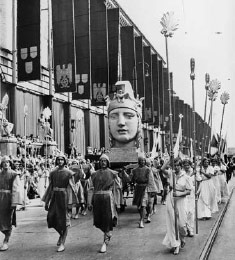
Hitler held inflexible views about art. National Socialist art (right) was championed by the state, while âdegenerate' art (above) was displayed for public ridicule at the infamous Munich exhibition, 1937. The caption reads: âGerman peasants viewed through Yiddish eyes.'
Â
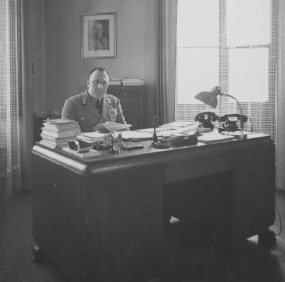
Hans Knab was the local Nazi leader in Pforzheim â the eyes and ears of the regime. Gestapo officers and informers helped him monitor all aspects of life in the town.
Â
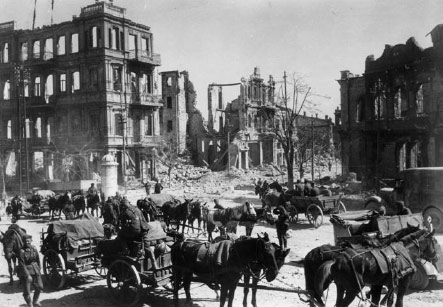
Sebastopol, above, was seriously damaged during its capture by German forces. In 1942, Wolfram saw similar scenes of destruction in Kerch, at the eastern end of the Crimean peninsula.
Â
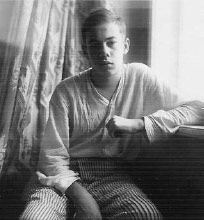
Wolfram recuperating in a military hospital in Marienbad, 1943. As soon as he was better he was sent to Normandy, arriving in time for the D-Day landings.
Â
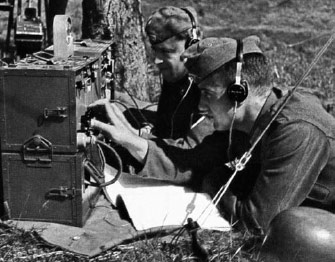
Wolfram served as a âfunker', or wireless operator, working in a small team similar to the one pictured. It was dangerous front-line work as wireless operators were specifically targeted by Allied forces.
Â
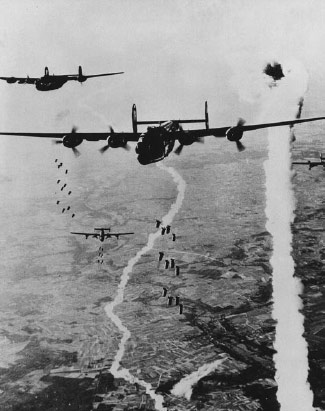
âSchnell! Quick! Take cover!' On 17 June, 1944, Wolfram and his comrades were attacked from the air. Wolfram was one of the lucky few to survive.
Â
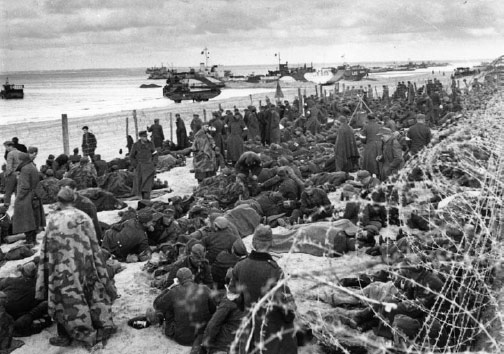
Wolfram and his comrades gratefully surrendered to American forces. They were taken to a makeshift encampment, similar to above, adjacent to Utah Beach.
Â
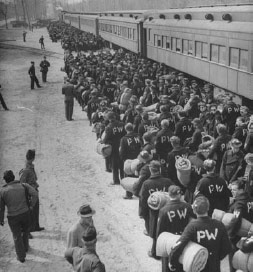
German prisoners of war were transported from New York to their prison camps in Pullman trains.
Â
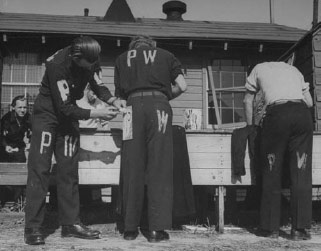
German prisoners painting the letters PW onto their uniforms. The American uniforms were of a far superior quality to the German ones.
Â
